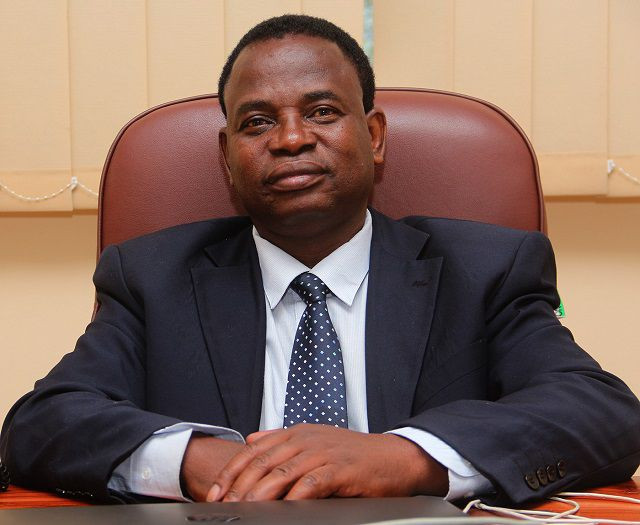
"I HAD hoped for a good future for my daughter, but news that she was pregnant at 13 came to me as a blow. I was in shock and in pain, especially considering that I am a single mother,” said Yevai Chigunduru of Bindura.
Unlike many parents who yearn to hear news of their daughter’s pregnancy and itch to go through the experience with them, Chigunduru was in a fix.
Her daughter was having many complications and to make matters worse, the boy responsible and his parents never assisted, leaving her to bear the burden alone.
“She was always sick, most of the time, I could only watch her helplessly. I couldn’t afford much and I thought I could do with help from the boy’s camp, but they would have none of it,” she said.
Her daughter faced a lot of complications, many of which she did not anticipate, having gone through the process of pregnancy herself.
According to Plan International, adolescent pregnancy remains a major contributor to maternal and child mortality.
“Complications relating to pregnancy and childbirth are the leading cause of death for girls aged 15-19 globally. Pregnant girls and adolescents also face other health risks and complications due to their immature bodies. Babies born to younger mothers are also at greater risk,” Plan International says.
Like any determined mother, she wanted the best for her daughter but due to their economic standing, it was a mammoth task to an extent that they were sponsored by a well-wisher to go to Harare for specialist services.
- ‘Politics derail anti-corruption fight’
- Young adolescents need huge assistance in making SRHR decisions
Keep Reading
According to the World Health Organisation, adolescent mothers (aged 10–19 years) face higher risks of eclampsia, puerperal endometritis and systemic infections than women aged 20–24 years, and babies of adolescent mothers face higher risks of low birth weight, preterm birth and severe neonatal condition.
Despite efforts to get the boy’s parents to help, especially at a time when her daughter’s condition was worsening by the day, nothing came out.
Things got worse for Chigunduru and her daughter to an extent that she hoped for the worst — termination of the pregnancy.
Adolescents and young people are more likely to have an unsafe abortion, which is the termination or ending of a pregnancy by an unskilled, non-medical provider.
In this case, it was the mother who was opting for abortion.
Her reason was because she couldn’t watch as her daughter went through the challenges she was facing.
In most cases, it is the pregnant adolescent who resorts to an abortion.
Some 3,9 million unsafe abortions occur each year to girls aged 15-19 in developing regions.
According to Ipas (health, access, rights), young women and girls account for nearly one-third of all unsafe abortion-related deaths each year worldwide, with 15% of all unsafe abortions taking place among adolescents ages 15-19.
There is, however, a lack of research in girls aged 10-14.
Despite growing global attention to the health and welfare of adolescents and girls, little is known about the abortion experiences of girls under the age of 15.
“My daughter was too young to go through what she was experiencing. I tried to get her to abort as I hoped this would be our only way out,” she said.
Unfortunately, the Termination of Pregnancy Act only allows the lawful termination of pregnancy when the pregnancy endangers the life of the mother, if the unborn child is at risk of physical or mental defects that could pose a serious risk to both mother and child, or if rape or incest is a reasonable possibility.
But during a recent visit to her home in Bindura, Chigunduru acknowledged that she lacked knowledge on how to initiate the legal abortion process.
Activists are calling for a review of the decades-old abortion law to increase protection for women and girls.
According to the Zimbabwe Human Rights Commission, this review will reduce illegal abortions and increase sexual and reproductive health rights for younger women, who usually opt for unlawful procedures in desperation because of restrictive laws and gender-based violence from men who could refuse paternity.
Women and Law in Southern Africa Zimbabwe (WLSA) director Isheanesu Chirisa decried that the law does not include unrestricted access to abortion, particularly for adolescents who may face challenges related to unplanned pregnancies.
“Unsafe abortions remain a critical public health concern, as many adolescents turn to unskilled, non-medical providers due to the legal restrictions, stigma, and lack of access to safe abortion services,” she said.
“In Zimbabwe, social, religious and cultural norms heavily influence young people’s access to abortion services and their ability to make informed decisions.
“As WLSA, we believe that allowing safe abortion services for adolescents would reduce the number of unsafe procedures and save lives. Backstreet abortions in Zimbabwe are being done using knitting needles, spoons, dishwashing liquid, dangerous pills and concoctions.”
Chirisa said this is putting the lives of hundreds of adolescent girls at risk and a lot more are dying in silence out of fear.
“It would also give young people a sense of urgency in making decisions about their reproductive health, rather than being forced into potentially life-threatening or physically and emotionally burdensome situations.
“Safe abortion services, combined with comprehensive sex education and access to contraception, would empower young people to make informed decisions and safeguard their health,” she said.
Chirisa said they firmly challenge the constitutional validity of some of the sections of the Act as it excludes pregnancies of minor girls conceived through marital or familial rape by older relatives and spouses.
“There is a clear need and urgency for amendments in the Termination of Pregnancy Act to better address the specific challenges faced by young people, especially in cases where their health is at risk due to pregnancy.”
Said Muchanyara Cynthia Mukamuri, the executive director for Self-Help Development Foundation and chairperson of Women’s Coalition of Zimbabwe: “While we acknowledge the government’s efforts to regulate abortion, we believe that the current framework is overly restrictive and fails to protect the health, well-being, and human rights of adolescents and young people.
“We urge the government to reconsider its stance on abortion and to work towards creating a more inclusive and supportive environment for adolescents and young people.”










